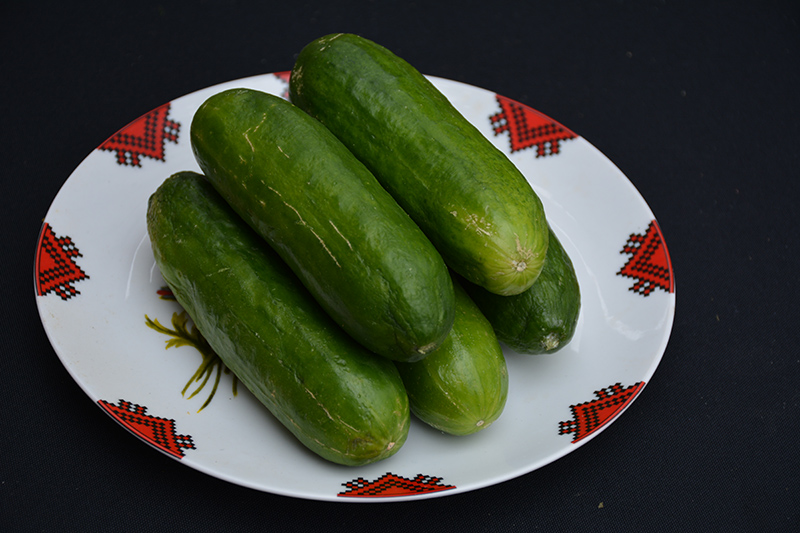
PLANT
SEARCH
Green Light Cucumber
Cucumis sativus 'Green Light'
Height: 20 inches
Spacing: 20 inches
Sunlight:
![]()
Hardiness Zone: (annual)
Brand: Known-You Seeds
Description:
A beautiful early maturing, vigorous vining variety; producing high yields of 4" long seedless, dark green cucumbers; sweet with a crunchy texture; great for snacking or pickling; suitable for succession planting; trellising is recommended
Edible Qualities
Green Light Cucumber is an annual vegetable plant that is commonly grown for its edible qualities. It produces small dark green long cucumbers (which are technically 'berries') with light green flesh which can be harvested at any point. The seedlesscucumbers have a sweet taste and a crunchy texture.
The cucumbers are most often used in the following ways:
- Fresh Eating
- Eating When Cooked/Prepared
- Pickling
Planting & Growing
Green Light Cucumber will grow to be about 20 inches tall at maturity, with a spread of 6 feet. When planted in rows, individual plants should be spaced approximately 20 inches apart. This fast-growing vegetable plant is an annual, which means that it will grow for one season in your garden and then die after producing a crop.
This plant is typically grown in a designated vegetable garden. It should only be grown in full sunlight. It does best in average to evenly moist conditions, but will not tolerate standing water. It is not particular as to soil pH, but grows best in rich soils. It is quite intolerant of urban pollution, therefore inner city or urban streetside plantings are best avoided. Consider applying a thick mulch around the root zone over the growing season to conserve soil moisture. This is a selected variety of a species not originally from North America.
Green Light Cucumber is a good choice for the vegetable garden, but it is also well-suited for use in outdoor pots and containers. With its upright habit of growth, it is best suited for use as a 'thriller' in the 'spiller-thriller-filler' container combination; plant it near the center of the pot, surrounded by smaller plants and those that spill over the edges. Note that when growing plants in outdoor containers and baskets, they may require more frequent waterings than they would in the yard or garden.

